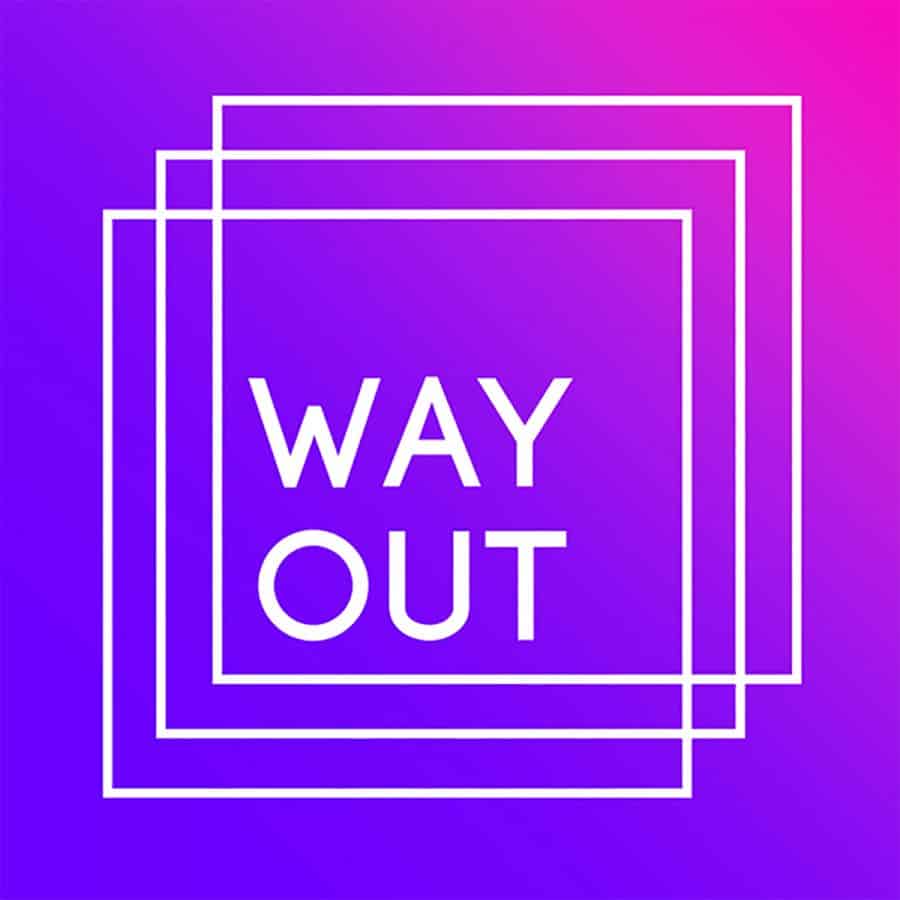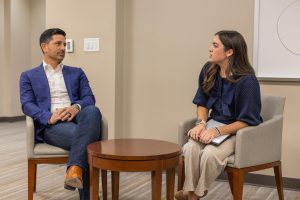Former students give a voice to the silenced
August 30, 2018
Recent UA graduates produce “Way Out”, a podcast highlighting the LGBTQ+ community in Alabama. They traveled across the state listening to stories from those who faced discrimination, loss and triumph. In seven episodes Anastasiya Titarenko and Rick Lewis convey the various aspects of life growing up in Alabama’s LGBTQ+ community.
Alabama has a long history with unacceptance and marginalization of new ideas and ways of life which break from old traditions. As the state works toward becoming more progressive, those who were once outcast now create sanctuaries within the state. However, the fight for acceptance is unrelenting and continues to be an uphill battle today.
Two students inspired by the surrounding sociopolitical landscape, Anastasiya Titarenko and Rick Lewis, narrated the struggle LGBTQ+ individuals face living in Alabama through their podcast “Way Out.” The podcast gives a voice to an underrepresented community across Alabama. In it, they discuss misconceptions, stereotypes and elements of being LGBTQ+ in the South.
Despite Alabama state laws lacking necessary legal protections – such as those against job discrimination – for the LGBTQ+ community and the recurring acts of violence against them, Titarenko said it is this stark contrast that led her to explore why many LGBTQ+ people continue to make Alabama their home state.
“Queer identity is not monolithic – it is lived by people with incredibly diverse experiences and identities in regards to race, socioeconomic status, religious beliefs and familial expectations,” Titarenko said. “The list goes on and on.”
A further goal of the podcast is to bridge a cultural and generational gap between younger and older LGBTQ+ individuals. Lewis said the level of communication between different LGBTQ+ generations isn’t ideal, and many young people do not recognize the struggle it took to get the rights and acceptance they have today. Lewis went on to say how he admired the unapologetic and fearless nature of those he interviewed in becoming role models for their community.
Although the show features stories only from LGTBQ+ individuals and their families, both producers agreed the show casts a wide net in terms of audience members. Titarenko and Lewis tried to build empathy through story.
“No matter your home state, your religion, your age, your political affiliation, this podcast gives you an opportunity to get to know a group of people whose stories haven’t been given the platform they deserve,” Titarenko said.
Lewis concurred that everyone could take something away from each story. For him in particular, it was Allen Woellhart’s story in the episode “Darkness and Light.” Woellhart is an individual who lost many friends to AIDs and HIV and was diagnosed with HIV himself in the early ‘80s. This was a time when the disease was highly misunderstood and society was quick to outcast those afflicted by it.
“He lived with grace and humility,” Lewis said. “He was a martyr for his community and lived through such challenge only to come out a stronger person. He became a powerful voice. I had no idea how horrific AIDs and HIV is. It was really sobering to hear the number of people that he lost.”
The desolate aspect of losing so many friends shed more light on the grave reality of AIDs and HIV. Woellhart’s story reinforced the idea of “recognizing other humans as humans,” Lewis said.
“Living in Tuscaloosa my whole life, I felt like there was a whole community in this state I wasn’t aware of before I listened to the podcast,” said Olivia Daidone, a junior majoring in management information systems. “Listening to the stories really opened my eyes to struggles my fellow neighbors and peers are facing around me.”
Titarenko said she wants every listener to feel like they know the storyteller by the end of each episode. However she also recognizes that, although the stories bring silenced narratives out of the darkness, they only scratch the surface of Alabama’s LGTBQ+ community.
“That is the beauty of this show – it really highlights the diversity of Alabama’s queer community,” Titarenko said. “I hope that the podcast dispels the idea that Alabama does not have a vibrant LGBTQ+ community, that it challenges the notion of a single story and that it starts a conversation that leads to more support for Alabama’s LGBTQ+ community.”
The producers said the episodes are listed in recommended order for listening. It begins with “Darkness and Light” and ends at the episode “Way Out.” The podcast is available for free by searching “Way Out” on iTunes, the Google Play Store or Facebook.










